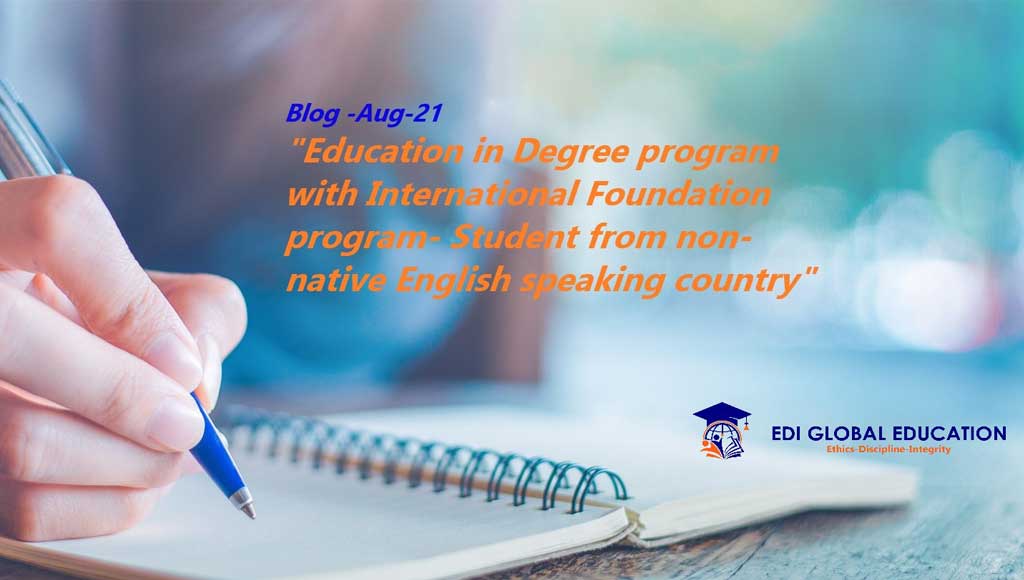The main barrier I found when applying to an international university was not the application itself or obtaining a student visa, study permit, but the worry over how I would go from using my native language, Nepali, to being taught in my second or third language, English.
I knew English from high school, but I questioned myself whether it would be sufficient at university. I came across Nepal based university with aim to get my higher education from UK based university with help of my education consultant.
Most of my academic teaching at my home country is in English but could not score required English level from my IELTS so could not qualify to jump directly into a degree program, so I chose to join the university’s International Foundation Programme (IFP) for a year first. The IFP helped strengthen my personal and academic skills before starting my undergraduate degree. Arriving at the university for the foundation year, I found myself overwhelmed with the number of things I would have to learn and adapt to, but the positive side was that I was not the only student feeling this way. Hundreds of other students from various countries had made the same choice.
Improving in any new language requires practice, so I tried to chat to anyone I could to improve my English – even pronouncing words incorrectly seemed like practice. During the International Foundation Programme we received lots of feedback, particularly with regards to academic writing, presentations, research and structuring assignments.
Initially, my listening skills were not excellent, so sometimes I wouldn’t take notes in lectures because I needed to focus completely on the lecturer to understand what was being said. I also tried to mimic certain aspects of the lecturer’s explanation to help myself and other students. Through the weekly classes, my English began to really improve. By the end of the foundation year, I had improved my ability to read, write, listen and speak English by starting conversations, observing teachers’ explanations and trying to communicate in English as much as I could.
When it came to starting my undergraduate degree after the foundation year, I had a slight advantage over the non-native speakers who joined directly due to their ability to score better in IELTS . Non-native speakers who came directly to the course sometimes struggled with vocabulary and structuring assignments, particularly the ability to write solid academic arguments. I had already gone through much of this in the foundation year. Observing other students’ difficulties motivated me to become a student voice leader, where peers come together and help strengthen each other’s language skills.
Explaining specific content from classes to another student requires skill and patience, but I found it useful to find common ground between the class content and some aspect of the student’s life, then identifying a possible metaphor to facilitate the explanation to the student.
I’m now in my final year, and the ability to help other students has provided a great opportunity to make friends, learn about other countries, new perspectives, and most importantly new languages.
Overall, I can see my performance including my level of confidence to approach any new task in English speaking country has improved a lot compare to those students who directly qualifies in degree program from the non-native English speaking country!!
Declaration:
The concept of this blog is from one of our student from Nepal, currently studying in final year of his degree program in UK University. Author from EDI Global Education has modified this concept on behalf of student prior to publish it.
Author can be reached at
edi.sydney@ediglobaleducation.com.au

